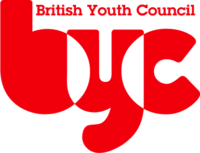Press releases to journalists.
British Youth Council calls for an end Rwanda deportation policy
The British Youth Council remains concerned about the government’s continued attempts to deport people to Rwanda. The charity’s international representatives, UK Young Ambassadors, call on the government to end this brutal practice immediately. The intervention follows a series of statements from across the political spectrum and an open letter from more than 100 organisations. The
- Published in News, Press, UK Young Ambassadors
UK Youth Parliament gathers to build new vision for change
Over the weekend more than 200 Members of Youth Parliament from across the country met in Hull for their Annual Conference. During the event, members debated new policies and campaigns for the year ahead. The three-day national conference, which is organised by the British Youth Council, forms part of the charity’s efforts to bring about
- Published in News, Press, UK Youth Parliament
British Youth Council reignites campaign for a lower voting age
The British Youth Council is renewing its efforts to lobby politicians for a lower voting age of 16 as part of a 3-year partnership with The Body Shop. Together, they will develop a Votes at 16 manifesto, calling for all political parties to incorporate full voting rights to 16- and 17-year-olds in all national elections
- Published in News, Press, Votes at 16
British Youth Council expresses concern following reports of Black schoolgirl being strip-searched by police officers
On 15th March 2022, it was reported that a 15 year-old black schoolgirl (Child Q) was subjected to an invasive strip search at school by two police officers. The British Youth Council are appalled to learn of the young black girl’s experience, and reiterate previous calls to end anti-Black police brutality. Osaro Otobo, Deputy Chair
British Youth Council celebrates local youth voice changemakers
Young people and projects from across the country have been recognised at the British Youth Council’s Youth Voice Star Awards. The awards celebrate the breadth and diversity of youth voice happening across the UK to promote young people’s voices. The celebratory ceremony, which took place in online, was a chance to recognise the change makers
Health and wellbeing the biggest issuing facing young people in the UK
Young people have stated health and wellbeing is their biggest concern in a mass survey of 11-18 year olds across the country. UK Youth Parliament have conducted a ballot of young people in the UK asking them to choose which issues matter to them most. Almost half a million young people took part in the
- Published in News, Press, UK Youth Parliament
UK Young Ambassadors respond to war in Ukraine
As international representatives of the British Youth Council we are extremely concerned by the events currently unfolding in Eastern Ukraine. After weeks of escalation and failed attempts to return to diplomacy, Russian President Vladimir Putin – as of the early hours February 24, 2022 – authorised a “military operation” into the Eastern Donbass region of
- Published in Blogs, Press, UK Young Ambassadors
UK Youth Parliament calls on young people to have their say
Young people across the UK can now participate in the UK Youth Parliament’s Make Your Mark ballot, the largest survey of young people in Europe. The month-long campaign will see volunteers and Members of Youth Parliament canvasing for the views of young people. The annual ballot, which has taken place since 2011, gives young people
- Published in News, Press, UK Youth Parliament
Largest consultation of young people to commence in February
UK Youth Parliament will launch its ballot of young people on the 1st February 2022 as part of its drive to determine the biggest issues. The nationwide ballot gives young people aged 11-18 the opportunity to shortlist the topics they feel are the most pressing issues facing young people across the UK. The month-long campaign
- Published in News, Press, UK Youth Parliament
British Youth Council welcomes new minister for children and young people
The British Youth Council are delighted to welcome new charities minister, Nigel Huddleston MP, who will take on responsibility for youth policy at the Department for Digital, Culture, Media and Sport following the departure of Baroness Barran MBE who has been in charge of the brief since November 2018 and has moved to the Department











